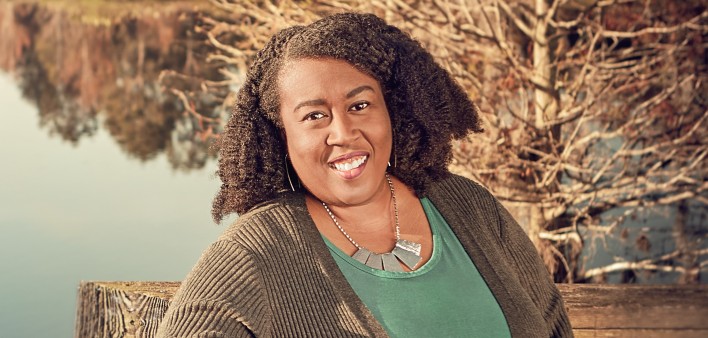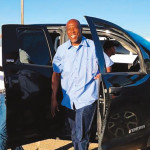When Kamaria Laffrey resumed attending church services following her HIV-positive diagnosis in 2003, she realized that no one in her congregation was talking about the virus. “I felt this unspoken shame,” says Laffrey, who lives in Winter Haven, Florida. “I heard people say [they had] other health conditions and it was instant compassion.”
When Laffrey disclosed her status to a fellow churchgoer, she got sympathy but also recalls being asked a “What did you do to get this?” type of question.
Not too much later, Laffrey found herself in a support group consisting of only older white men and wondered, “Where are the people who look like me?”
These incidents would help inspire her to become an HIV advocate. Since 2007, Laffrey has worked to break down stigma, fight HIV criminalization and empower people living with HIV.
In 2013, Laffrey founded emPOWERed Legacies in order to reach out to faith-based communities more directly.
“I looked at the word empowered and saw the word power in it,” she explains of her organization’s name. “I thought I could connect this to the faith-based audience through the power of faith and how that could help you overcome obstacles in your life.”
The “Legacies” part of the name was inspired by a conversation Laffrey had with a mentor about redefining one’s legacy.
The organization provides development training, testimonial workshops (through the ministry Faith.Hope.Love, housed at her church in Bartow, Florida) and even referrals to medically trained professionals.
“I didn’t want the word HIV in it because I didn’t want people to feel as if they could be easily identified if they wanted to join in or come to me for information,” says Laffrey about Faith.Hope.Love.
Although Laffrey uses emPOWERed Legacies as a springboard for conversations about HIV, she wants to expand it to address other health, social and developmental issues that affect all people.
She is currently the Florida community organizer for The Sero Project, a network of people with HIV who work to end stigma and injustice stemming from outdated HIV laws on the books.
In 2017, Laffrey was chosen to be a part of the inaugural class of policy fellows for Positive Women’s Network–USA and was named Best Advocate for Female HIV Health by Healthline.
“I want to be able to provide something that serves a need in the community,” Laffrey says. “I want it to live beyond me.”







1 Comment
1 Comment